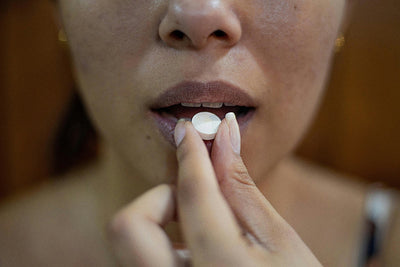The Link Between ASD and Heavy Metal Exposure
The Link Between ASD and Heavy Metal Exposure
By Katie Black
For millions of expectant women across the US, taking prenatal and postnatal supplements and vitamins is repeatedly advised by doctors, family, friends and even strangers.
An infant’s brain needs nutrition to develop from the moment they are conceived so it makes sense that mothers are reaching for these products. But this is also the time when their infant’s neurodevelopment is most vulnerable. This means that anything an infant consumes or comes in contact with that contains toxic metals can be really harmful.
“While lots of studies focus on exposure to one heavy metal such as lead or mercury and have found that no amount of exposure is safe, what’s even more worrying is constantly being around multiple heavy metals.”
Unfortunately, many supplements, vitamins and even baby food contain heavy metals.
There is more and more research showing a correlation between constant low exposure to heavy metals and autism spectrum disorder (ASD), receptive and expressive language delays, learning disabilities, and behavioral issues.
One review looked at forty studies and unlike other reviews on the link between toxicants (poisonous substances made by human activity instead of naturally existing) and ASD, this one accounted for both genetic and environmental factors. The review looked at reports measuring heavy metals in the blood, hair, brain, teeth and/or urine in children with ASD compared to the control children.
The researchers found that ASD can be caused by complex interactions between genetic factors and environmental toxicants. These things may work together during really important stages of brain development, or they may work side by side in a way that increases the chances that a child develops ASD.
Also, while lots of studies focus on exposure to one heavy metal such as lead or mercury and have found that no amount of exposure is safe, what’s even more worrying is constantly being around multiple heavy metals. Over time they interact with one another and the combination makes the toxic effects even worse. This can harm cognitive abilities, motor functions, central nervous system development, brain volume and lead to a drop in IQ level (by an average of 15+ points).
"Supplements are not regulated by the FDA so it is up to consumers to make sure they’re not purchasing anything containing heavy metals."
There is no excuse for baby foods or supplements having heavy metals. The effects can be awful and last a lifetime. Avoiding any exposure should be a top priority. Heavy metals can be passed on through breast milk so it is vital to be aware of exactly what’s in your diet, mama. Even though having the genes for ASD cannot be changed, lowering your and baby’s exposure through baby food, pre and postnatal vitamins certainly can!
Supplements are not regulated by the FDA so it is up to us consumers to make sure we aren’t purchasing anything with heavy metals. Double check labels for Clean Label certification and be aware of white labeling. These are products not directly made by the brand, but simply made in bulk by another party and labeled and sold by the brand.
We recently partnered with the Clean Label Project and launched our own infant supplement to ensure babies are getting the nutrients they need without the health hazards. Made from a few, pure ingredients, it has everything your baby needs, and nothing they don’t! You can also make sure your child is not being exposed to heavy metals by having your breast milk tested for lead, cadmium, arsenic and mercury.
While regulation catches up with science, we must make sure to do everything we can to keep away from these very toxic substances.
References
Branum AM, Bailey R, Singer BJ. Dietary supplement use and folate status during pregnancy in the United States. J Nutr. 2013;143:486–492. [PMC free article] [PubMed] [Google Scholar]
Gahche J, Bailey R, Burt V, et al. Dietary supplement use among U.S. adults has increased since NHANES III (1988–1994). NCHS Data Brief. 2011;61:1–8.
Gomez MF, Field CJ, Olstad DL, et al. Use of micronutrient supplements among pregnant women in Alberta: results from the Alberta Pregnancy Outcomes and Nutrition (APrON) cohort. Matern Child Nutr. 2015;11:497–510
Rossignol DA, Genuis SJ, Frye RE. Environmental toxicants and autism spectrum disorders: a systematic review. Transl Psychiatry. 2014;4(2):e360. Published 2014 Feb 11. doi:10.1038/tp.2014.4






